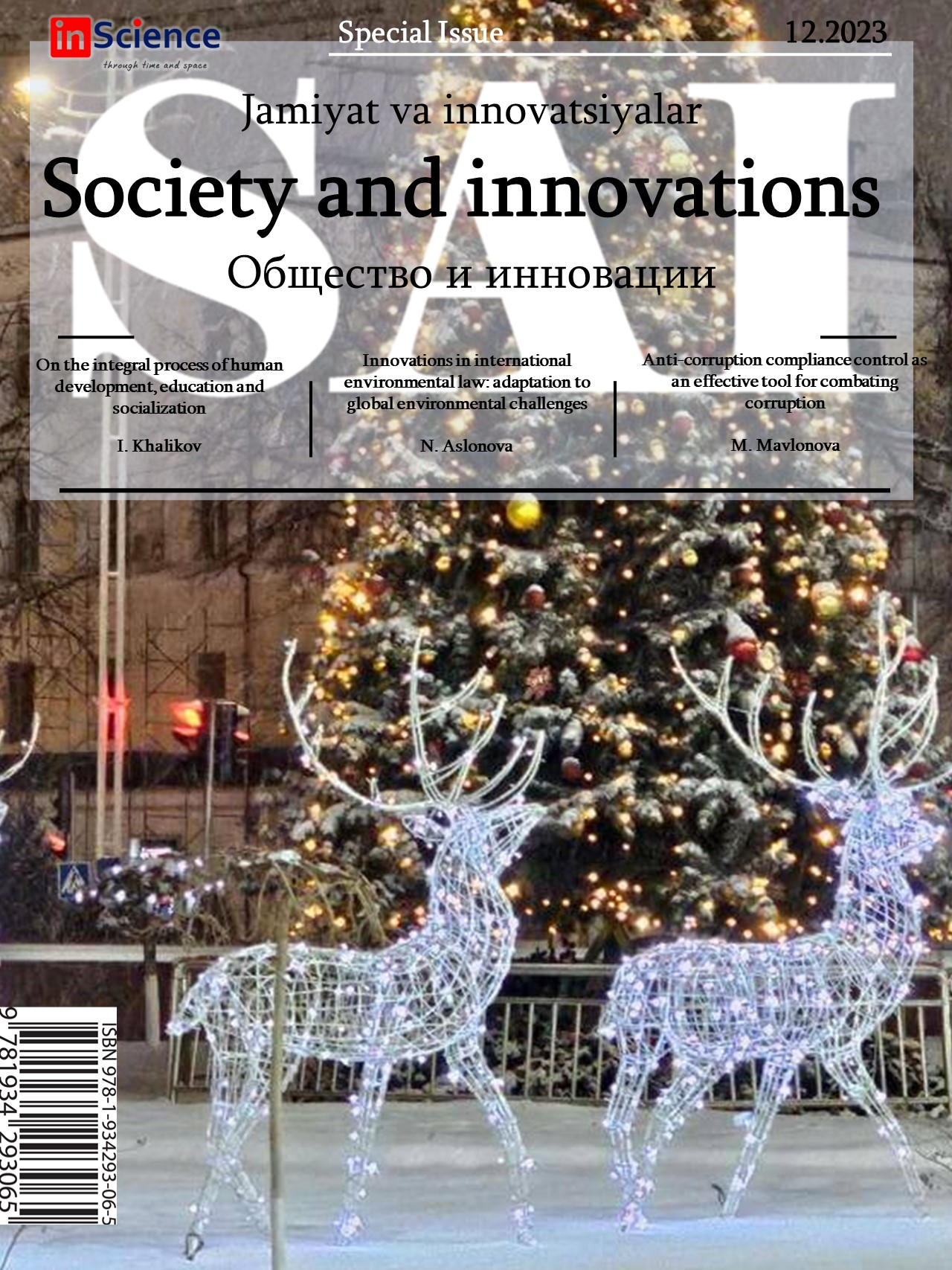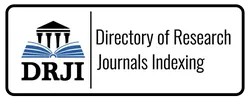DOI
https://doi.org/10.47689/2181-1415-vol4-iss11/S-pp102-112Ключевые слова
глобальный климат , ВВП , национальная экономика , объем инвестиций , энергетикаАннотация
В данной статье анализируются пути решения снижения влияния глобального климата на национальную экономику и масштабы его влияния, цели, а также предстоящие достижения и недостатки. Выводы и рекомендации исследования кратко представлены в разделе выводов и рекомендаций.
Скачивания
Библиографические ссылки
Selvaraju R. et al. Livelihood adaptation to climate variability and change in drought-prone areas of Bangladesh: Developing institutions and options. – 2006.
Riahi K., Roehrl R. A. Greenhouse gas emissions in a dynamics-as-usual scenario of economic and energy development //Technological Forecasting and Social Change. – 2000. – Т. 63. – №. 2-3. – С. 175-205.
O‘zbekiston Respublikasi Prezidentining “ Atrof-muhitni muhofaza qilish hamda ekologik nazorat sohasidagi davlat organlari faoliyatini tashkil etish chora-tadbirlari to‘g‘risida” qarori, 30.12.2021 yildagi PQ-76-son
Panepinto D., Riggio V. A., Zanetti M. Analysis of the emergent climate change mitigation technologies //International Journal of Environmental Research and Public Health. – 2021. – Т. 18. – №. 13. – С. 6767.
Howden S. M. et al. Adapting agriculture to climate change //Proceedings of the national academy of sciences. – 2007. – Т. 104. – №. 50. – С. 19691-19696.
Nakano K. Risk assessment for adaptation to climate change in the international supply chain //Journal of Cleaner Production. – 2021. – Т. 319. – С. 128785.
Samaniego J., Schneider H. Financing for climate change in Latin America and the Caribbean in 2014. – 2015.
Hussain M. et al. A comprehensive review of sectorial contribution towards greenhouse gas emissions and progress in carbon capture and storage in Pakistan //Greenhouse Gases: Science and Technology. – 2019. – Т. 9. – №. 4. – С. 617-636.
Leggett J. A. The United Nations framework convention on climate change, the Kyoto protocol, and the Paris agreement: a summary //UNFCC: New York, NY, USA. – 2020. – Т. 2.
Gao Y., Gao X., Zhang X. The 2 C global temperature target and the evolution of the long-term goal of addressing climate change—from the United Nations framework convention on climate change to the Paris agreement //Engineering. – 2017. – Т. 3. – №. 2. – С. 272-278.
Canadell J. G., Schulze E. D. Global potential of biospheric carbon management for climate mitigation //Nature communications. – 2014. – Т. 5. – №. 1. – С. 5282.
Abdurakhmanova G., Rustamov D. Venture investment environment in different countries analysis of venture business in Uzbekistan //Архив научных исследований. – 2020. – №. 21.
O‘zbekiston Respublikasi Prezidentining qarori, 04.10.2019 yildagi PQ-4477-son
Diyorbek, S. ., & Xasanov , H. . (2022). Iqlim o’zgarishi oqibatlarini bartaraf etishda xalqaro ekologik huquqning mohiyati. Евразийский журнал права, финансов и прикладных наук, 2(12), 211–223. извлечено от https://www.in-academy.uz/index.php/EJLFAS/article/view/6437
Kitzing L., Mitchell C., Morthorst P. E. Renewable energy policies in Europe: Converging or diverging? //Energy policy. – 2012. – Т. 51. – С. 192-201.
Загрузки
83 119Опубликован
Как цитировать
Выпуск
Раздел
Лицензия
Copyright (c) 2023 Камола Абдиева (Автор)

Это произведение доступно по лицензии Creative Commons «Attribution» («Атрибуция») 4.0 Всемирная.





















